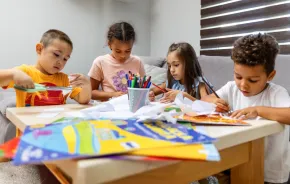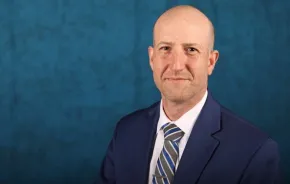
An Individualized Education Plan, or IEP, is your child’s roadmap to a meaningful education. It lays out the type of instruction and services they’ll receive, and establishes achievable goals to help them succeed in school. Even if you’ve read up on the nuts and bolts of IEPs, you may still have lingering questions. If so, here’s a list of points to discuss during the meeting that will help guide the conversation and address your concerns.
1. How can I contact team members outside of the meeting?
An IEP team usually consists of your child’s classroom teacher, a special education instructor, and a school psychologist to interpret and explain test results, and any associated services such as speech-language therapy, occupational therapy or behavioral intervention. Phone numbers and email addresses allow you to connect outside of the meeting, in case you have questions or information to share.
2. May I add to the IEP agenda and receive a copy?
An agenda provides structure and helps the meeting flow more easily. Even with a plan, however, it may seem that what’s being discussed doesn’t touch on your concerns. In addition to requesting a copy of the team’s agenda, create your own list of discussion points.
3. How can I call future meetings?
Parents and IEP teams meet once a year, but there may be times when you, your child’s teacher, or another team member may want to convene before the next meeting, especially when concerns arise or changes to the plan need to be made. According to the Washington State Governor’s Office of the Education Ombuds, IEPs can sometimes be altered without a formal meeting. Procedures on how and when to call meetings can be found here.
4. What type of information might be helpful to the team?
While team members are subject matter specialists, you’re the true expert on your child. Share information with new team members about your child’s strengths and challenges, together with likes and dislikes. Do certain rewards motivate your child at home? Knowing this may help professionals craft behavioral plans or carry out therapy more efficiently.
5. What can I do at home to help my child?
Your child’s teacher or therapists may offer ideas about what to practice at home.
6. What if I disagree with the IEP team’s recommendations?
First, share your views with the other team members, either during or after the meeting. If this doesn’t resolve the issue, you can follow the process of dispute resolution. These actions range from using a meeting facilitator to pursuing the due process.
7. Has COVID-19 changed the IEP process?
Yes, and no. Students are still entitled by federal and state law to special education services, but the pandemic has resulted in some changes that benefit families. According to Tania May, Assistant Superintendent of Special Education at the Office of Superintendent of Public Instruction, these include prioritizing in-person and recovery services for those most in need, or for students whose lack of sufficient progress was caused by the pandemic. Guidance is offered through the Office of the Superintendent of Public Instruction.
8. How is progress measured?
Your child will be tested every 3 years, or more often, at the team’s discretion. Test scores, professional observation and class performance are all considered good ways of measuring growth. These measurements help professionals develop goals for your child. Goals are the stepping stones that point your child toward improvement or mastery of specific skills that allow them to participate and learn more effectively.
9. What if my child isn’t making progress?
Learn what steps to take when you or other team members feel that the IEP goals need to be revised. If they seem unattainable, changes can be made before the next yearly meeting.
10. How will the process help my child prepare for life after school?
Once a Washington state student turns 16, IEP meetings should focus on helping them transition from school to young adulthood. College, work and independent living are all discussed. If possible, encourage your child to attend these meetings, so that their opinions can be heard.











